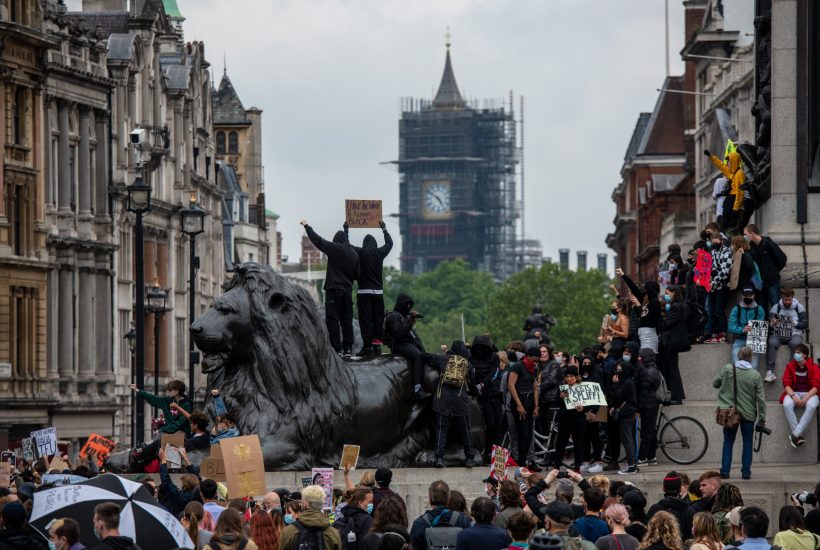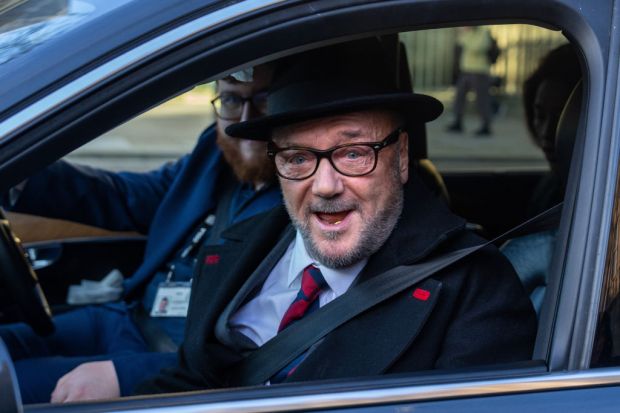By now, we ought to be seeing some evidence of increasing Covid-19 cases from the mass protests. The fact we are not raises very serious doubts about the coronavirus lockdowns and other non-pharmaceutical interventions, many of which are still ongoing.

One explanatory hypothesis is the weather – that outdoor protests in warmish weather might have decreased the infectious potential of Sars-CoV-2. This seems highly unlikely. Even if there is such an effect, it almost definitely doesn’t outweigh the close proximity of protesters to one another. Another explanatory hypothesis is that most protesters are relatively young, and therefore unlikely to fall ill but may asymptomatically transmit the virus. This could well be the case, but there is not yet enough data to support this hypothesis and I am not currently convinced this is the most compelling explanation.
The third explanatory hypothesis is that we have vastly overestimated certain risks from Covid-19, limiting fundamental civil liberties of law-abiding citizens and getting it wrong. It finally took unsanctioned mass protests to prove this point.
At this stage, I find the third explanation the most likely hypothesis. Novel pathogens are notoriously hard to predict and it’s better to be safe than sorry – so even in retrospect, a significantly different course of action from that of lockdown would have been ill-advised.
However, the current situation has unveiled an utter lack of a solid public understanding of public health policy. By necessity, public health has the power to limit fundamental civil liberties in cases of emergency – this is regardless of the merits of the subject. What is extremely dangerous is when opinions – whether correct or sincerely held – influence the application of limits to those civil liberties. Or, to put it more bluntly: if it is in the interests of public health to ban mass gatherings, then they must be banned across the board – whether it’s Black Lives Matter, anti-lockdowners or the Monster Raving Loony party’s annual open-air congress. A righteous cause doesn’t confer anti-viral immunity.
In this sense, we have embraced public health as a common cause just until it begins to hamper something many happen to agree with more. The disparities this creates are incredible, and it is difficult to see restrictions as unbiased public health measures now. From a purely scientific perspective, there’s no difference between lockdown protesters and anti-racism protesters. Given that exposure risk increases exponentially with the number of people in a certain vicinity, the opprobrium that the anti-lockdown protests have engendered seems excessive in retrospect
What we have right now is the worst of all worlds – a justified notion that public health measures are, to paraphrase the philosopher Anacharsis, like cobwebs: strong enough to catch the weak but too weak to catch the strong. This is a dangerous trend. We have accepted public health imperatives, not as the profound truths they are but instead like a cargo cult, as a way to signal or perhaps generate some sorely missing social cohesion, but with no depth and no real understanding of what’s going on
There are no winners in this. The losers are all of us. An abundance of caution is often a good approach, but it requires honest communication of the inherent uncertainties followed by consistent execution. Public health policies did acceptably on the first – but its political executors completely failed on the second point. There will be, I’m afraid, a very, very steep bill to pay for that in years (and pandemics) to come.
Got something to add? Join the discussion and comment below.
Get 10 issues for just $10
Subscribe to The Spectator Australia today for the next 10 magazine issues, plus full online access, for just $10.




















Comments
Don't miss out
Join the conversation with other Spectator Australia readers. Subscribe to leave a comment.
SUBSCRIBEAlready a subscriber? Log in